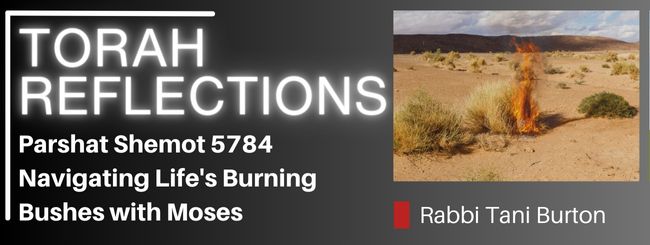Torah Reflections: Conversations on the Weekly Parshah
בס”ד
Integrating Torah into one’s life through reflection and conversation can be an incredibly fun and engaging experience. It’s a journey of discovery, where ancient wisdom and timeless teachings come to life in our daily experiences. Through reflection, we have the opportunity to dive deep into the rich tapestry of Torah, extracting profound insights and lessons that resonate with our modern lives. The joy lies in the ‘aha’ moments, those instances when a Torah verse or story suddenly connects with our personal challenges, aspirations, and values. And when we engage in conversations about Torah with others, it becomes an interactive exploration, where diverse perspectives and interpretations enhance our understanding. These dialogues often spark excitement and intellectual curiosity, making the learning process both enjoyable and fulfilling. Torah becomes a vibrant and dynamic part of our lives, offering not just guidance but also a source of endless fascination, connection, and growth.
NOTE: Don’t feel obligated to go through every source or answer all the questions—unless you want to. Even one source, or one question will give you plenty of material for discussion and meditation. Enjoy this!
Some thoughts about Parshat Shemot
Moses noticed something unusual—a burning bush that didn’t burn up. Intrigued, he decided to investigate, saying, “I’ll check out why this bush isn’t burning” (Exodus 3:3). Unlike others, Moses perceived and explored. The actual phrase “I shall–please–turn aside to see this great sight” (Exodus 3:3) means Moses, with the spirit of prophecy, was seeking G-d. That’s what prophets do. But G-d had also noticed something more magnificently human about Moses: his care for suffering brethren. Like G-d Himself, Moses saw and understood. It was this quality that deemed him fit to lead (Exodus 3:4). G-d recognized Moses as a leader due to his genuine concern for others, emphasizing a vital leadership principle: leaders must empathize with people’s struggles.
“Moses seeing” and “shepherding” are connected because the Hebrew words “to see” and “to shepherd” are homonyms. Moses’ ability to see is what made him fit to lead. Leadership involves understanding and guiding people. Despite their lowly spiritual state, Moses saw potential in the downtrodden Jewish people. This teaches the leader in us to see beyond flaws and recognize potential.
Leadership is stewardship; leaders must understand their responsibility toward those they lead. Moses, known as the Faithful Shepherd, embodies this quality. We’re encouraged to apply this leadership in our lives, addressing others’ pain. Compassionate leadership, envisioning a better future, is a guide for aspiring leaders. May we be led by compassionate leaders toward redemption, amen.
Questions for discussion and personal reflection
What burning bushes in your life are you overlooking, dismissing, or not investigating due to distractions or preoccupations?
- Reflect on a recent situation where you showed genuine concern for others. How did this align with the leadership principle of empathizing with people’s struggles?
- Consider a moment when you had the opportunity to guide or understand someone better. How did your perception or ability to “see” contribute to effective leadership in that situation?
- Think about a challenging circumstance or person in your life. How might adopting Moses’ perspective—seeing beyond apparent flaws—help you recognize untapped potential or possibilities?
- In what ways can you enhance your stewardship in personal relationships or leadership roles by being more conscious of the responsibility entrusted to you and recognizing the potential for growth and positive change?
Shabbat Shalom!
By Rabbi Tani Burton
© Copyright, all rights reserved. If you enjoyed this article, we encourage you to distribute it further.
Our blogs may contain text/quotes/references/links that include copyright material of Mechon-Mamre.org, Aish.com, Sefaria.org, Chabad.org, and/or AskNoah.org, which we use in accordance with their policies.
